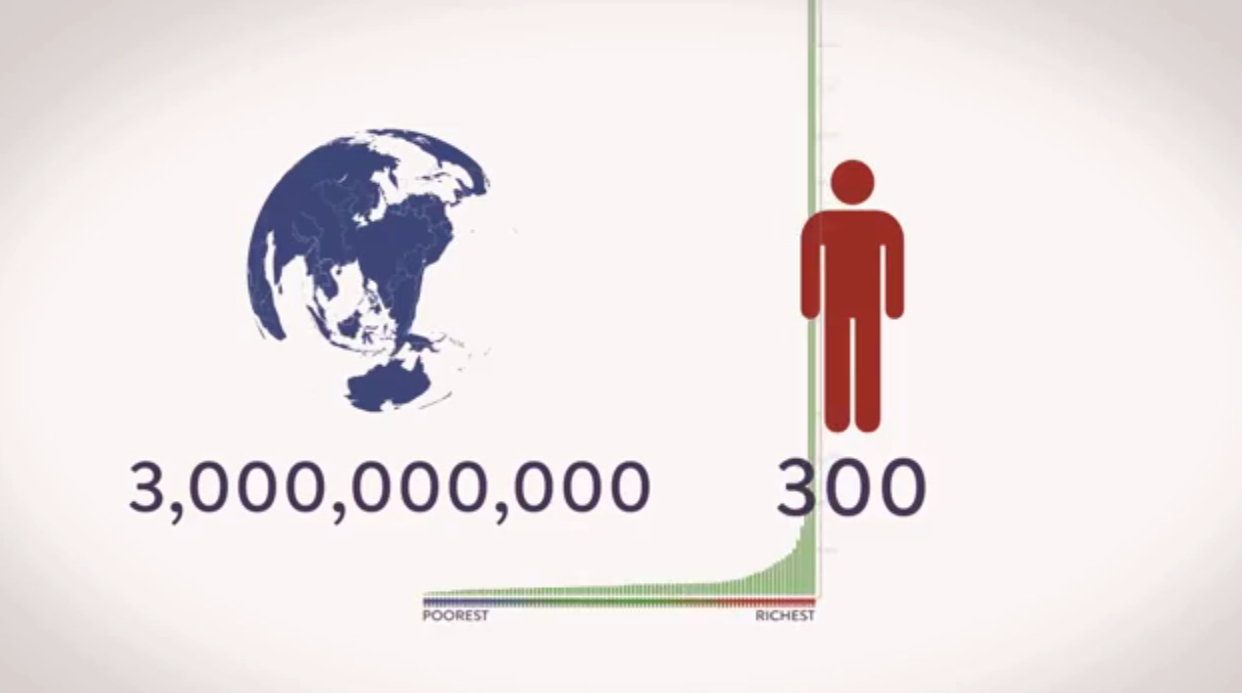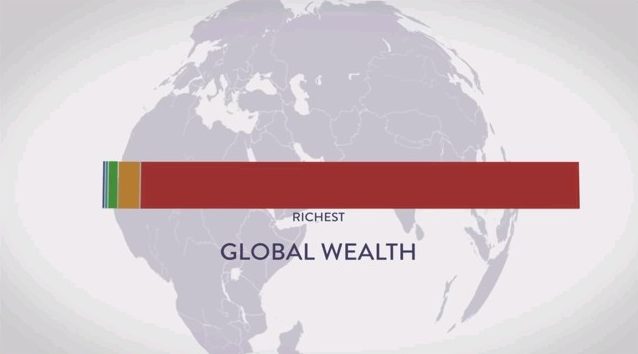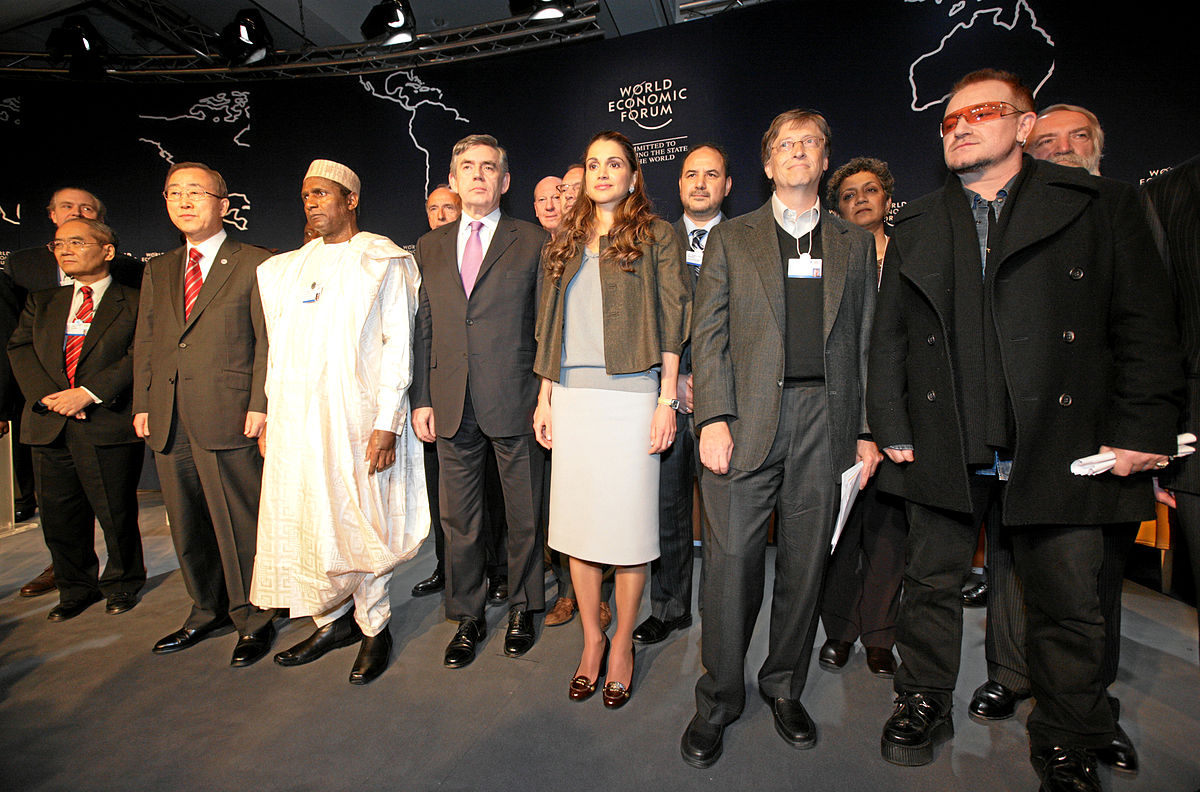
The world looks for solutions to its current crisis, but in the discussions I observe we rarely put into question what I consider to be the common denominator to all these issues: money.
The form of money we mostly have today is issued by a debt system that all nation-states without exception use for their money creation. Is it reasonable then to think that with this unique system we can succeed in solving our problems and sustainably meet the needs of 7 billion people? I highly doubt it. In this article, I’ve summed up the three main reasons why our monetary system can’t help humanity create a sustainable economy:
Reason #1: It needs constant growth to keep working
In a system based on debt, money is created when a new loan is “given” by a bank to a business or an individual. Loans are obviously linked to an interest rate: a fee is applied for borrowing money from a financial institution. To be able to constantly repay for loans, we need to create more growth by turning more things into payable products and services. If we fail to do so, banking institutions would go bankrupt and this whole economy we depend on would crash. So we inevitably transform what was once a gift from others or a gift from nature into paying products and services. It erodes communities and limits access to —or simply destroys— natural resources. Is it right that we have to choose between economic interests and the rest? How can we believe in unlimited growth on a finite planet?
Reason #2: It widens the wealth gap and fosters unhealthy competition
The monetary system has reached a point where it acts like a Monopoly game in which the player who’s about to win keeps getting richer at each round, putting the other participants in misery and trouble. The money system is designed in a way that it has for the past 250 years enabled the richest to grow larger financial empires (brilliantly proved by the economist Thomas Piketty). As a consequence, 1% of people own 41% of the global wealth; top 10% own 86%. Or how about this one: “The 85 richest people are now as wealthy as poorest half of the world.”
Because a few have a lot more than others, money has become scarce for most, meaning that we have to compete fiercely against each other to get our hands on what remains. This inevitably promotes individualism, hoarding and mistrust. How can we expect growing healthy societies when everyone use such a money system?
Reason #3. It makes helping the rich more rewarding than helping the poor
I worked with entrepreneurs for several years and observed that the areas of most concern were the ones that led to potential financial gain. All over the world small and large corporations build products and services that target people who can obviously afford them. Although this seems financially logical, it’s the reason we have vast quantities of products and services built for the (supposedly) needs of the richest while even the most basic problems of the poor remain unsolved. Abandoned by society, some have no choice but to stand on their own and take on hard jobs for low wages that are sometimes beneath human dignity, or worse, engage in activities such as drug and arm trafficking, prostitution, theft or begging. Don’t people say that we’re all equal?
The current money system can’t support a sustainable economy. So what do we do? Do we remain seated, waiting for governments and central banks to change policies about the global money system?
Money looks like something that only an elite can manage, but it’s in reality nothing more than “an agreement within a community to use a standard as a medium of exchange”. During the past 30 years, we have seen a tremendous growth of complementary community currency (CCC) around the world, from a handful in 1980 to more than 5,000 today: the Brixton Pounds in the UK, the BerkShare in the US, the WIR in Switzerland, the Chiemgauer in Germany, the Sol Violette in France, the TEM in Greece, the RES in Belgium, the Palmas in Brazil and the Fureai Kippu in Japan. These initiatives show that new economic dynamics that foster more solidarity, responsibility and equitability are possible when rules of the game are different. These new forms of currency also show us that some communities have not waited for higher institutions to set up solutions: members have gathered together, shared their problems and co-created new money models to complement the traditional system and fill in the gaps.
You can learn more about money, progress and community solutions to move toward a sustainable economy in the book I wrote with Ruth: “Creating Our (R)Evolution”. It’s available on free access as we’ve decided to rely on donations to fund our work. Looking forward to seeing you as one of our readers!








Great blog, thank you Thomas. We’ll give it some social media promotion.
Excellent post! Clear and concise outline of the three drawbacks of a debt based money system. Glad I was introduced to you! Will be following.
Thanks Rasha. Looking forward to connecting with you.
Charles Eisenstein nails it in his book Sacred Economics: Money, Gift and Society in the Age of Transition.
http://sacred-economics.com/
Agree with you Keith, it’s a really good book (and available on free access).
Good to see you highlighting complementary currency solutions here, Thomas.
Your readers might like to check out the book “People Money – The Promise of Regional Currencies”, which I co-authored with the late Margrit Kennedy and with Bernard Lietaer. In the book we profile sixteen of the world’s leading local currency systems based on interviews with their leaders. There is also a chapter on HOW to set up a regional currency system, often a sorely neglected topic in the literature.
Since this book I have also written two shorter pamphlets “Local Money – What Difference Does It Make?”, which contrasts the strengths and weaknesses of national and local currencies and then last year “The Map – How To Out Your Local Economy”, which outlines a strategy for mapping local needs and assets, with or without a regional currency attached.
Full details at my website: http://www.valueforpeople.co.uk
Thanks John for this information. I’m definitely going to check your books.
You have hit it on the head – debt based system but you focus on CCC as the solution. To my mind just do away with debt, i.e. The ability of the powerful borrower using other peoples’ money to become wealthier. Please see my Blog under the Community section ” The Illusion of Legitmacy: The predatory borrower and inequality”
Thank you…
Thank you Thomas, these are 3 very good points about the flaws of money. Money is notorious and antiquated as far as systems are concerned. Money is dangerous for the environment and everybody’s health. Luckily we don’t have to suffer money for much longer. As a Software Engineer, I have begun to design a new online social trading system that will replace money. To give you an idea, the system is somewhat similar eBay. A cloud based solution, where we can exchange goods and services, provide feedback, make requests, and create jobs. This is a system that literally tracks supply and demand around the globe, rendering money completely redundant.